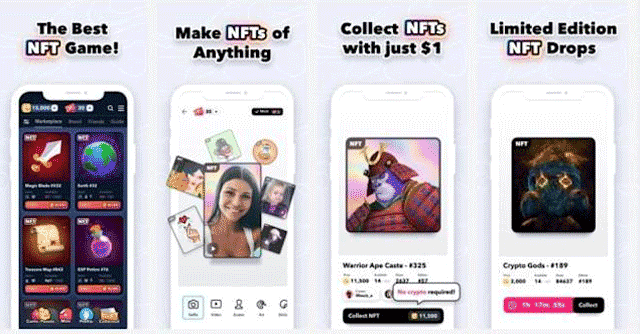
Apple bans ‘Sticky’ NFT app for operating in guise of decentralised blockchain

Apple has banned a non-fungible token (NFT) marketplace app, Sticky, from its App Store earlier this week. The ban has been seemingly enforced due to Sticky implementing a rather loose definition of a blockchain and NFT marketplace, which Apple deemed as a move to circumvent App Store fees. However, the move has raised the need for Apple to standardise its approach towards NFT marketplaces – and how it intends to act on them.
The ‘Sticky’ app in question was reportedly a repository for custom, user-made stickers. Its developer, Alan Lammiman, subsequently pivoted the app into offering NFT collectibles in a bid to improve monetisation avenues for the app and attract more funding. However, Apple’s ban on the app from earlier this week stated that Sticky’s classification of its products offered through the app as ‘NFTs’ was misleading, since the latter were not minted on a public, decentralised blockchain – and instead used a private ledger with zero transparency to do the same.
Apple, on its part, was correct. Sticky itself described the ‘NFTs’ sold on the platform as “collectibles”, and not investments or convertible currencies. The app required its users to use StickyCoin in order to buy its NFTs – but the currency in question was not a crypto token. Instead, it was a standard in-app currency that users could purchase through fiat currency, and use the same to purchase what Sticky referred to as NFTs.
Any of these collectibles on the app were watermarked unless purchased, but even then, Sticky did not offer any cross-platform selling of NFTs. Highlighting these issues, Apple stated that Sticky’s products could not qualify as NFTs minted on a transparent, public blockchain and with transactions offered in a blockchain-validated crypto token.
While reports have deemed Apple’s ban of Sticky to be a legitimate one, questions remain regarding the company’s stance on NFT marketplaces. Apple reportedly allows NFT marketplaces such as OpenSea or Rarible to operate only as NFT browsing windows, and not as a transaction platform. However, it continues to allow crypto wallets – such as MetaMask – with the ability to store, buy or sell NFTs to remain operational on the App Store.
Reports have questioned Apple’s restriction of NFT marketplaces on the App Store, and linked the same with the company’s strict enforcement of a 30% App Store commission on in-app purchases. Apple has strongly defended its commission – including in its landmark court battle against Epic Games – by stating that it has managed to keep iOS largely malware free due to investments that it has made in the App Store.
Developers, on the other hand, have contested Apple’s ‘walled garden’ approach, stating that its practices prevent its millions of users around the world to have a choice regarding the source from where they wish to download their apps and services.
When it comes to NFTs, Apple so far only allows any NFT marketplace to work if the same is purchased using its own payment methods. Section 3.1.5 of Apple’s App Store review guidelines suggest that crypto wallets will be allowed to function on the Store for storage of virtual currencies – but does not specify if the same may or may not include NFTs.
It is this that is left to Apple’s interpretation of a particular app or marketplace. While Apple’s ban on Sticky appears to be in line with its policies due to the app itself not quite offering NFTs in their truest sense, it remains to be seen if the company’s approach towards maintaining its App Store commissions are further raised by crypto wallet and NFT service providers, going forward.

